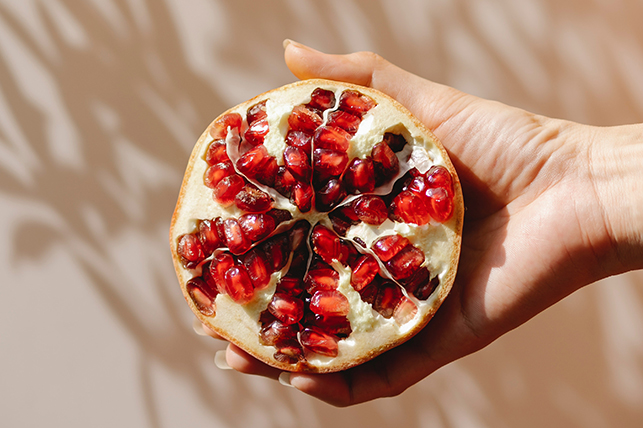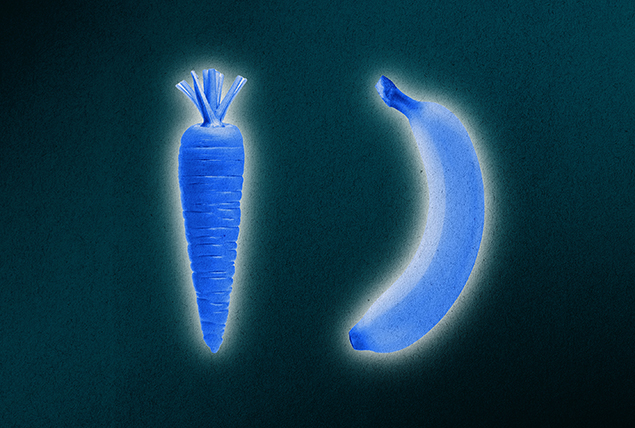Between the Pages: 'The Longevity Diet' May Extend Your Life Span

As a youth, Valter Longo wanted to become a rock star. Born and raised in Italy, at age 16 he moved to Chicago to live with his aunt.
"On weekends, I would sneak out of my aunt's house and take the L train downtown, where I would plug in and jam with musicians in blues clubs all night long," Longo, Ph.D., recounted in his 2019 book "The Longevity Diet" after about 30 years devoted to investigating aging and studying ways to extend a person's life span.
Longo, who still plays guitar, eventually decided on a career in science, but his time spent jamming and studying music continued to inform his research.
"In science and medicine, the music composer approach pushes you to look for new ideas, new hypotheses," he said. "It also requires that the intervention has a mathematical foundation and is in harmony with the human body and its history."
Perhaps that's why a glucose-lowering drug might provide a temporary fix, but since it disrupts normal bodily function and doesn't consider the overall harmony of the human organism, it could then lead to adverse effects over time, he said. Instead, Longo advocates for this thought: "What if we can rejuvenate the insulin-resistant muscle cells that cause the high glucose levels and render them more functional?"
Predicated on the five pillars of basic/juventology research, epidemiology, clinical trials, centenarian studies and studies of complex systems, Longo authored the book to provide actionable dietary advice. His ongoing work was highlighted in January 2023 by National Geographic. He argues for "low but sufficient" protein consumption (until a person gets a bit older) in a diet relatively low in sugar but replete with many whole foods, such as legumes, vegetables and nuts. He sees value in the modest consumption of fish, which led to some pushback on a plant-based advocacy podcast in 2022. Beyond that, Longo believes many people could benefit from incorporating a fasting-mimicking protocol every once in a while, as described in the book.
In this exclusive interview with Giddy, Longo, director of the Longevity Institute at the University of Southern California Leonard Davis School of Gerontology in Los Angeles, expounded on the recommendations compiled in "The Longevity Diet" and shared his thoughts on intimacy in relation to healthy longevity, how to maximize long-term sexual health and function, the dietary modifications that pregnancy demands and how he would add to the book now.
Editor's note: This interview has been edited for length and clarity.
In the book, you suggest that people consume 0.31 to 0.36 grams of protein per pound of body weight. Is this lower than the amount of protein that major organizations like the U.S. Department of Agriculture and the World Health Organization recommend? Would any lifestyle differences affect the recommendation?
Longo: They're the lower level of the limit. If you look at most organizations, 0.8 grams per kilogram of body weight is the recommendation. If you calculate that per pound, it turns out to be about 0.37. That's the standard lower limit. I think people may need to go higher if they're vegan because it's not just about proteins. It's also about amino acids and some plant-based food. They contain very little of certain amino acids, particularly legumes. People who eat a lot of legumes, I think they need to maybe have four or five meals a week of animal or animal-like or [a] vegetarian type of protein [of] animal origin, say, yogurt and eggs, etcetera.
Could you explain the low-fruit recommendation? Do you think some fruits are better than others and more permissible on the diet than others?
Fruit has problems in multiple arenas. One is the sugar. Two is just the sugar calories. Three is the fructose. And four are the allergies, inflammatory properties, etcetera, [and] out-of-seasonality issues. In the old days, you ate strawberries because they grew in your backyard, in your garden, [during] the right moment of the year. Now, strawberries are all the time. Bananas all the time. Some of these plants have ways to defend themselves. Could it be that they're causing problems? That's why we say one fruit a day; seasonal fruit, one seasonal fruit a day. So pick your fruit and you can rotate as long as [it's] from the right season, that's probably OK.
You discuss the role of the fasting-mimicking diet (FMD) you developed to promote healthy longevity, and how in combination with the longer-term longevity diet, it can help with the prevention and treatment of cancer, diabetes, cardiovascular disease, neurodegenerative diseases and autoimmune diseases, potentially. Can you explain how you developed the FMD, why it works, what it entails and how often you think people should be incorporating it?
The fasting-mimicking diet was a response to 50 years of my boss's, Roy Walford, work. Roy, at the time, in the early '90s, was the most famous person in the world for nutrition and aging. He had come up with something, based on many people before him, called calorie restriction to slow down aging and do all the things that prevent diseases. The FMD is the response to that and basically says, OK, nobody wants to be calorie restricted and be very low [body mass index] for their entire life. So that calorie restriction is never going to work. Additionally [there are a] lot of side effects: losing lean body mass, potentially having issues with your immune system and with other normal functions.
How do you get the benefits of calorie restriction without the problems of calorie restriction? There's this idea, is it possible that maybe we do this for five days, once every three or four months? Or maybe once every month in the beginning and then we move to once every three or four months or six months? Is it possible that if we do it like that we get the benefits and not the problems? It looks like from our trials that we get lots of benefits, particularly those that have risk factors in the beginning: lowering of glucose, lowering of blood pressure, lowering of inflammation, lowering of IGF-1. [IGF-1 is the hormone that manages the effects of growth hormone in your body.]
Many of these [benefits] are long-lasting. Three months after they stop, they still have these benefits compared to the baseline. We've proven very clearly in mice—but we still have to prove in people, because it's much harder—[that this helps in getting] rid of damaged cells, getting rid of precancerous cells and cancer cells, and getting rid of autoimmune cells and insulin-resistant cells. That's another important role of the fasting-mimicking diet.
Finally, during the refeeding, [there's] the opportunity to rebuild or partially rebuild the organs and systems [that] have broken down. For example, if you look at the immune white blood cells, within seven days, they go down about 20 percent during fasting. But they come back to normal. What happened between these two moments, lowering and going back to normal? In mice, clearly, we show this is a hematopoietic stem cell-dependent fact. We activated derived stem cells that are giving rise now to new white blood cells. That's another big role of the fasting-mimicking diet.
You made a joke in the book, noting the diet "allows you to enjoy coffee and alcohol—and puts no limit on sex." Would you support the notion that for many, if not all, people, a healthy, active sex life and regular sexual intimacy can contribute to healthy longevity and/or long-lasting psycho-emotional health that might in some ways be related to healthy longevity?
Obviously, I'm not an expert [on sexual health]. But I would say, like everything else, it seems to be for some people and not for other people. Priests are some of the longest-lived people. Monks are some of the longest-lived people, some of the happiest people you'll ever meet. The Dalai Lama seems like a healthy person and a very happy one. I would say you could argue both ways.
You see this in many historical speculations by so-called experts; they were actually saying abstinence is key to longevity. I'm not saying [that] and I don't think it is. I think there could be somebody who's very happy with a very active sex life, and then on the other side, you could have somebody even happier or as happy with no sex life at all.
If you were to include a chapter on sexual health and function and address people's concerns about wanting to have a healthy, robust sex life well into old age, what would you emphasize in that chapter?
I would emphasize that this has to be done in the context of longevity. I have little doubt that if you have a higher protein intake, particularly [from animals that maybe have] some of the steroid hormones that come with the meat, that may be better for you sexually. The question is, is that also going to accelerate your aging? And it almost for sure is.
I think it's a matter of finding the right balance and saying, "OK, I'm happy right now." So vegans have lower testosterone, for example, right? If you're vegetarian or if you're pescatarian, that's unnecessary. You could modulate, but you may want to have just enough testosterone that you're happy sexually but still don't enter this Western pathology world.
The same goes for estrogen in women. I think that chapter [would be] in the style of all we do at the foundation. Now, there are a lot of people who work there. We don't just give advice. We give advice after we read hundreds of papers and put it all together, not in [an] encyclopedic manner, but more like, OK, now I think I understood it if it was a paper. And now I'm going to write the paper about, say, sex and nutrition, and my guess is it's like a couple of months of work by 10 people.
Would 'The Longevity Diet,' perhaps minus the FMD cycles, work well for somebody who's pregnant?
I would do the Mediterranean diet during pregnancy. The longevity diet is more about putting people in a maintenance mode, in a nonreproductive maintenance mode.
You wrote the book several years ago. Has your thinking on the subject of nutrition changed at all in the years since you wrote it, and would you change any of the recommendations included in the book if you were to write it today?
Because it was based on five pillars and one of them is [a] 100-year-old pillar, no, I wouldn't change it, but I would add to it. I think I would add [content] about intolerance, autoimmunities and allergies. I didn't know enough at the time. I think if I wrote a new one, I would talk much more about what bothers people.
If you are intolerant, if you have celiac disease, you definitely cannot do a lot of the things that are in my book. But also, if you're sensitive to gluten, you may not be developing autoimmunity. And so you need to know, and you need to maybe [do some] adjusting and get the low-gluten pasta, maybe whole grains. I think I [would] expand that a lot; maybe one or two chapters dedicated to that.


















